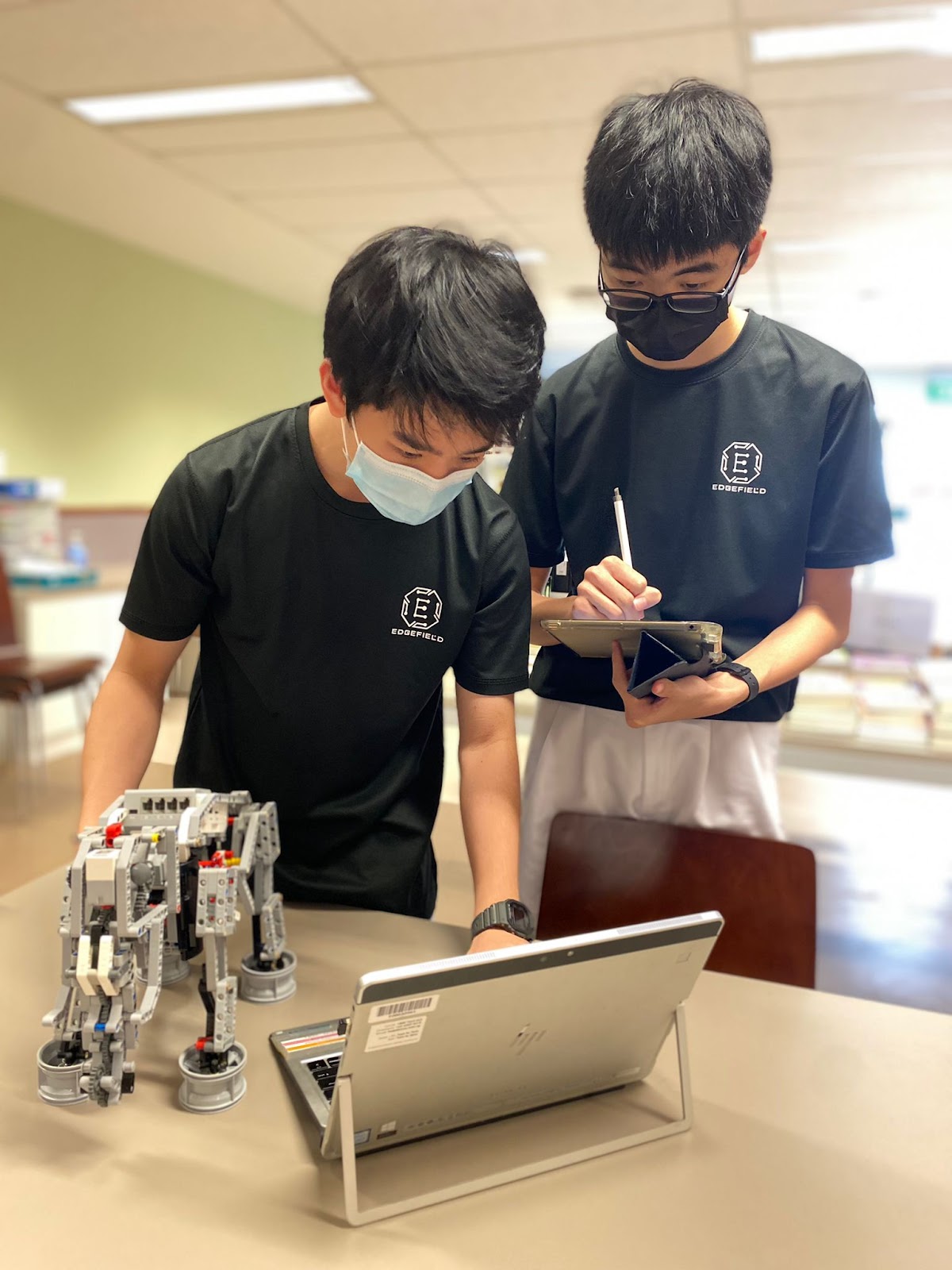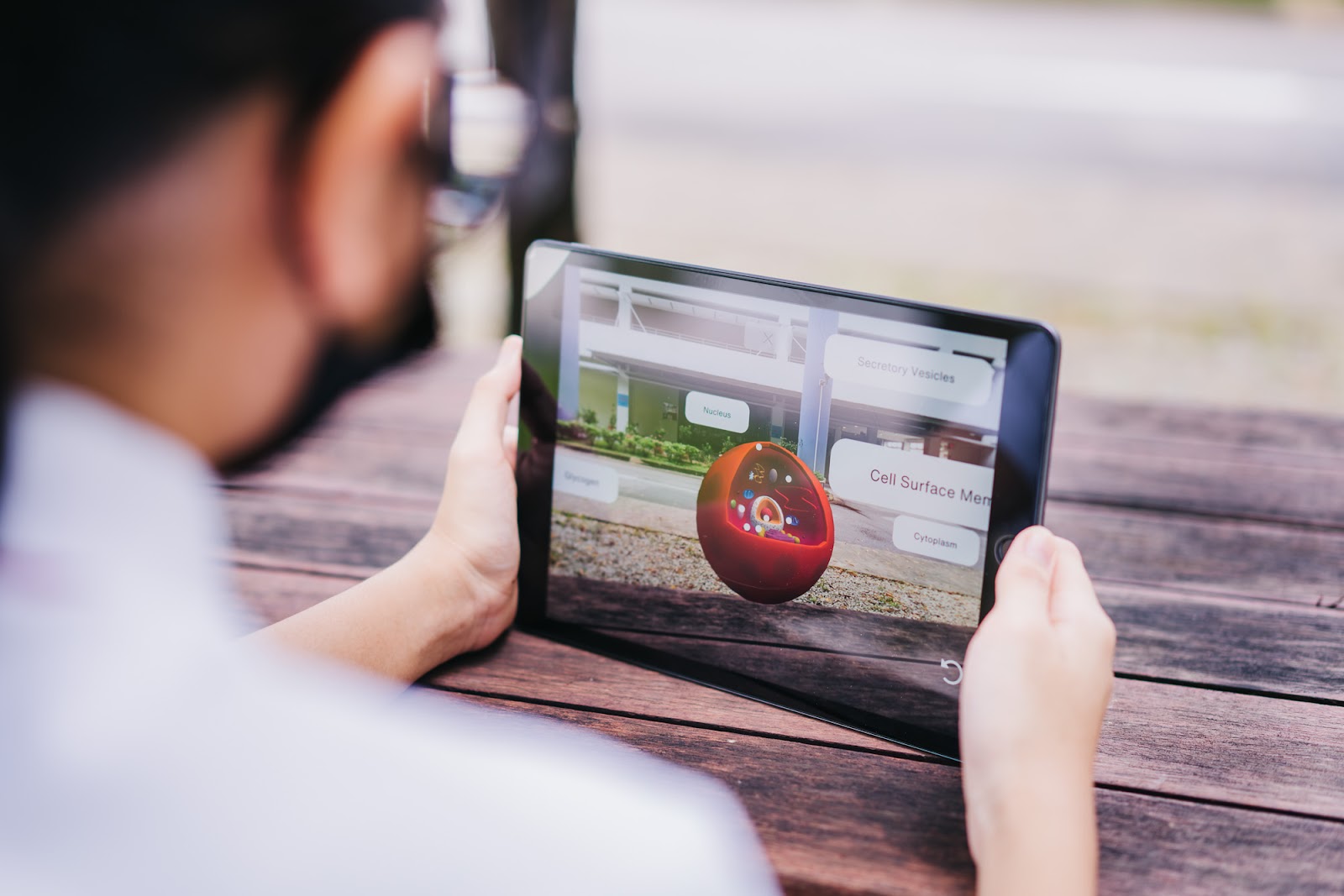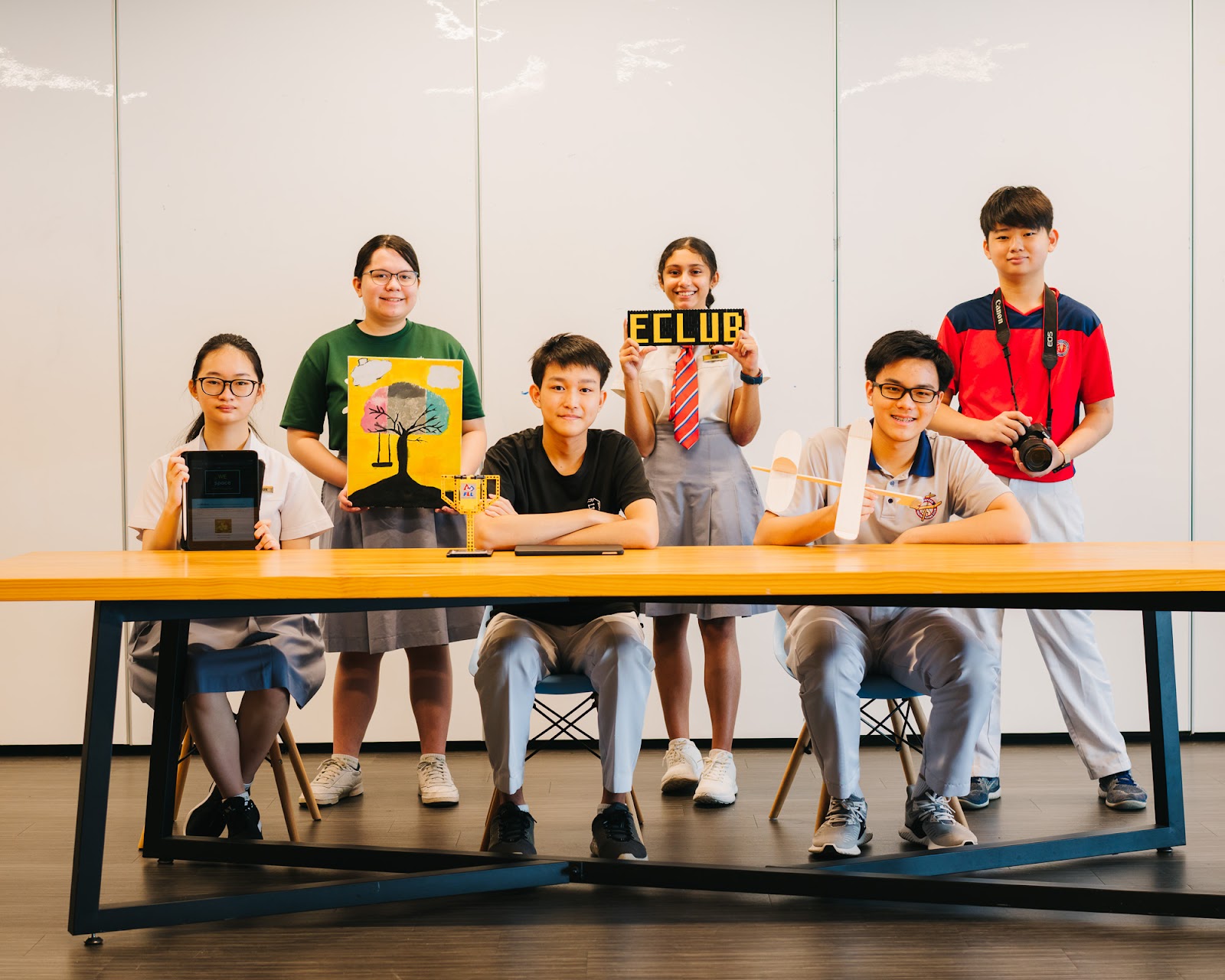With every student having their own personal iPads, Edgefielders are not only prepared for HBL but benefit from a seamless and self-directed learning experience.
“When I came to Edgefield I was really surprised that iPads were heavily used for lessons. I had always associated iPads with gaming and entertainment before coming to Edgefield,” Oliver Chay, a Sec 2 student said.
At Edgefield Secondary School, a deliberate effort is made to nurture all students to be problem solvers with the responsible use of technology. As digital natives, they are taught to harness technology in many aspects of school life, from daily lessons, project work and co-curricular activities. The school adopts the Apple Education Programme and the 1:1 iPad programme allows each student to purchase a personal iPad at a heavily subsidised rate, or loan one from the school.
In the pandemic era, the PDLP has helped EFSS be ready for sudden and long stretches of Home-Based Learning.
“It was good that we had our devices when Covid-19 came and the Circuit Breaker was announced in 2020. During HBL, we had access to our notes and could revise for exams,” Oliver Lim, another Sec 2 student said.
Using the iPad has helped teachers be more efficient in disseminating information by emailing or AirDropping them to students.
“My Math teacher uses the iPad to send us Math notes – previously we would have used printed notes. She also sends us links to websites which help us understand math concepts better, like quadratic graphs,” Oliver Lim said. For example, decimals.com is a popular website Math teachers use where students can experiment to see how the variables in an equation can affect the graph.
Interactive platforms such as Kahoot, Mentimeter and Quizizz are able to give students immediate feedback or make lessons more engaging.
“Teachers can send us quick and fun quizzes on Kahoot or other platforms, and some competition in class makes us pay attention better. We have access to the Internet during lesson time and we can also use the iPad to take notes by typing or with a stylus, and do research,” Oliver Chay said.
“The iPad is really intuitive and easy to use, I don’t see anyone struggling with the iPad.”
Edgefield is an active user of the Student Learning Space (SLS) and Google Classroom which give students access to rich learning resources and activities. Teachers can design different learning experiences for students to learn anywhere, anytime.
The use of iPad applications has also enabled teachers to give timely and individualised feedback.
“When I give students assignments, they no longer need to use pen and paper. Instead, they can use a note taking app, and upload their assignment on Google Classroom, where I can mark the assignment and give them feedback right away,” Ms Cherie Chiang, who teaches English, said.
The iPad is also used during certain CCAs like Robotics.
Oliver Lim said: “During our Robotics CCA, we had a filming class. We were given a theme, “Time”, and asked to film our favourite part of school. We used our iPads to film and edit the short video to tell a story.”
Alumni and former Head Prefect of EFSS, Ng Ying, remembered the Apple Education Programme having an impact on her interests outside of academic work for both herself and her sister.
“I enjoyed the non-academic programmes at EFSS. The Apple Education Programme, with its basic software video editing software like iMovie, sparked my interest in video editing. My sister attended EFSS two years after me and was so interested in making videos, she pursued video editing at polytechnic level. It wouldn’t have happened if not for this opportunity at EFSS,” Ying recalled.
With the widespread use of devices at school, precautionary measures are put in place to ensure its proper usage.
A device management software is installed on devices that allow teachers to monitor how it is being used. Teachers are able to monitor what is on a student’s screen during class time.
The software is also set to shut down applications at 10pm daily. “Although it’s to help us manage our time better, sometimes we can be in the middle of an assignment when the app shuts down!” Oliver Lim laughs.
Students are taught during Character & Citizenship Education (CCE) classes how to critically evaluate what is read online, discern genuine news from falsehoods and not rely on social media for “likes” and validation.
“If you read something that is too good to be true, check if it’s legit before sharing it with others. Compare the news with other reliable sources,” the Olivers said of what they had learned.
“We’re taught to use devices correctly, at the right time, and balance online and offline time,” said Oliver Chay.
“We try to prioritise work over entertainment. Socially, we don’t use our personal device during conversations - unless we’re all gaming together, of course!” quips Oliver Lim.




